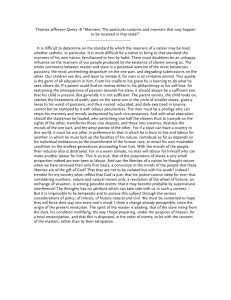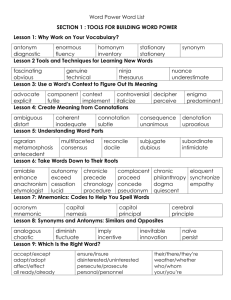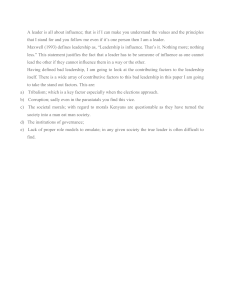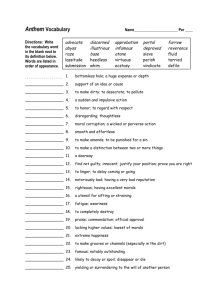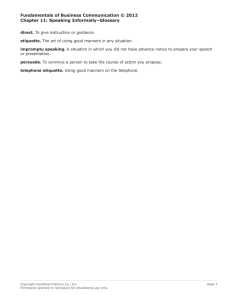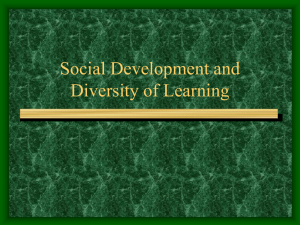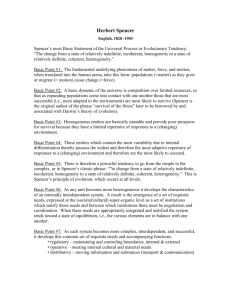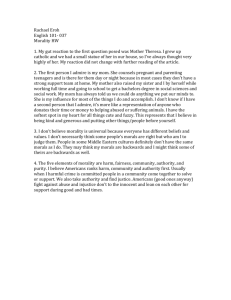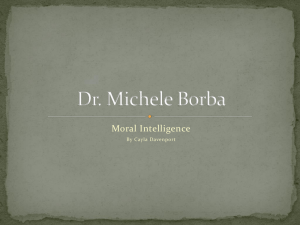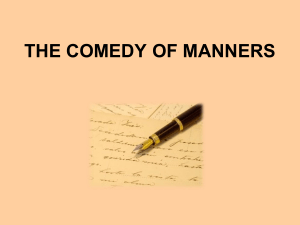Harriet Martineau: Major Themes
advertisement
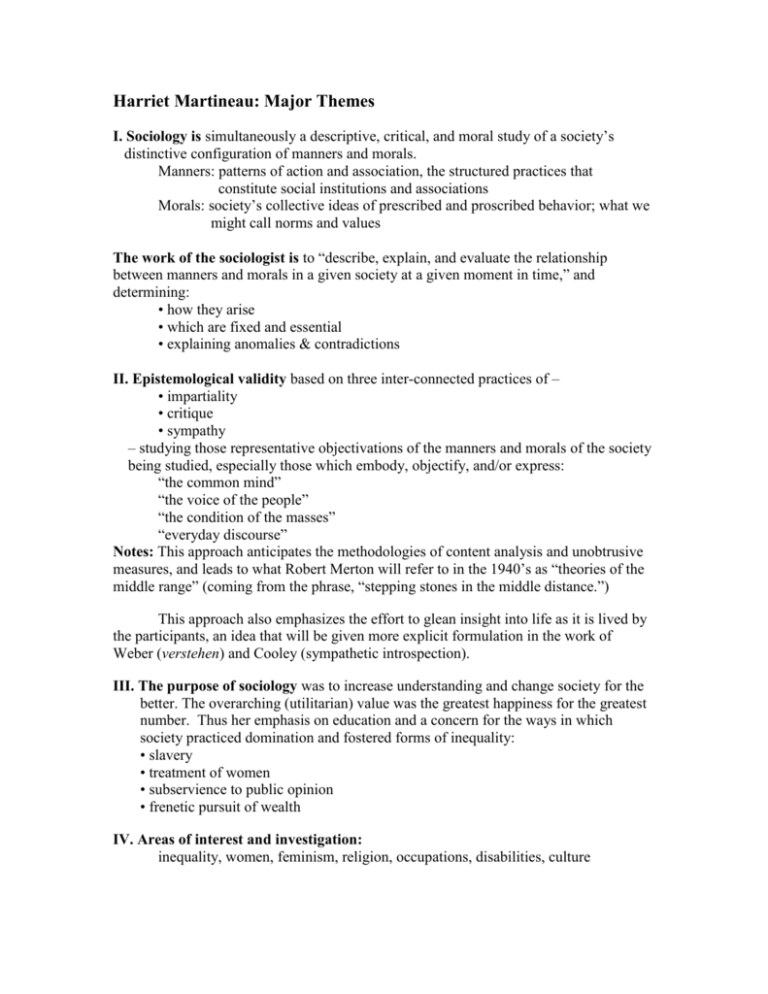
Harriet Martineau: Major Themes I. Sociology is simultaneously a descriptive, critical, and moral study of a society’s distinctive configuration of manners and morals. Manners: patterns of action and association, the structured practices that constitute social institutions and associations Morals: society’s collective ideas of prescribed and proscribed behavior; what we might call norms and values The work of the sociologist is to “describe, explain, and evaluate the relationship between manners and morals in a given society at a given moment in time,” and determining: • how they arise • which are fixed and essential • explaining anomalies & contradictions II. Epistemological validity based on three inter-connected practices of – • impartiality • critique • sympathy – studying those representative objectivations of the manners and morals of the society being studied, especially those which embody, objectify, and/or express: “the common mind” “the voice of the people” “the condition of the masses” “everyday discourse” Notes: This approach anticipates the methodologies of content analysis and unobtrusive measures, and leads to what Robert Merton will refer to in the 1940’s as “theories of the middle range” (coming from the phrase, “stepping stones in the middle distance.”) This approach also emphasizes the effort to glean insight into life as it is lived by the participants, an idea that will be given more explicit formulation in the work of Weber (verstehen) and Cooley (sympathetic introspection). III. The purpose of sociology was to increase understanding and change society for the better. The overarching (utilitarian) value was the greatest happiness for the greatest number. Thus her emphasis on education and a concern for the ways in which society practiced domination and fostered forms of inequality: • slavery • treatment of women • subservience to public opinion • frenetic pursuit of wealth IV. Areas of interest and investigation: inequality, women, feminism, religion, occupations, disabilities, culture
